What is Forex?

In this article
You’ve probably heard the term forex but have no clue what it’s all about. Read further to learn what is forex and how to understand the basics. Forex, sometimes referred to as foreign exchange or FX, is a network of buyers and sellers who trade one currency for another at an agreed-upon price. The main goal of currency trading is to earn a profit. Foreign exchange trading occurs in the foreign exchange market, which is also known as the forex market.
If you’ve ever travelled outside the country, you will most likely have made a forex transaction.
Volatility exists when the volume of currency gets converted daily, affecting price movements. This volatility makes forex trading appealing to traders, as they can get high profits while risk increases.
What is Forex and the FX Market?
Forex trading takes place in an over-the-counter (OTC) market directly between two parties. It is the most liquid and most significant market globally, with no centralized location. Because there’s no central location, forex can get traded 24 hours a day.
The forex market gets spread over four major trading centres within various time zones, namely Sydney, Tokyo, London, and New York. The forex market is accessible five days a week, 24 hours a day, due to traders working across various time zones.
The forex market consists of three different markets, namely:
Spot forex market
A spot forex market is the natural exchange of a currency pair. It occurs at the exact precise point a trade gets settled, or “on the spot,” and occurs within a short time.
Forward forex market
A forward forex market occurs when a contract is agreed upon, where a specific amount of a certain currency is bought or sold at a specified price. This transaction gets settled at a set future date or in a specified range of dates in the future.
Future forex market
A future forex market occurs when a contract is agreed upon, where a specific amount of a certain currency is bought or sold at a specific price, at a specific date in the future. A futures contract is different from a forwards contract, as its contract is legally binding.
What Influences the Forex Market?
The forex market comprises currencies from all over the world, which makes predicting exchange rates challenging. Numerous factors contribute to price movements, the main factor being the economic principle of supply and demand. The following factors influence price fluctuations:
Various News Reports
Investors and commercial banks put their money into economies that have positive news. Positivity promotes investment, and demand increases for that specific region’s currency. Likewise, negative news can decrease investments and lower the price of the region’s currency.
Market Sentiment
Market sentiment is when traders react to the news, which can drive currency prices. Demand can increase or decrease according to what traders believe regarding currencies and the direction they get headed in. Traders will then trade according to what they believe, and others will follow their lead.
Central Banks
Central banks control supply and can affect currency prices significantly. When more money gets injected into the economy, there will be a drop in the currency’s price.
Economic Data
The economic data indicates how an economy performs and gives a glimpse as to what a central bank will do next.
Credit Ratings
An investors’ primary objective is to reduce their risk, and they’ll attempt this by maximizing the return they can get from a market. With the information they receive from economic data and interest rates, they will consider credit ratings.
The credit rating of a country is an indication of how they pay their debts. A high credit rating means the country is safe for investment, and the price of their currency will increase.
Differences Between a Base and Quote Currency
The first currency that gets listed in a forex pair is known as the base currency. The second currency listed is the quote currency. Forex trading is always quoted in pairs, as you’re selling one currency to buy another. The forex pair’s price gets determined by the worth of one unit of the base currency in the quote currency.
A three-lettered code gets used to distinguish the currency pair. The initial two letters stand for the region, whereas the last letter stands for its currency. One such example of a currency pair is USD/GBP, which entails buying the US Dollar and selling the Great British pound.
Using the example above, the base currency is the USD, and the quote currency is the GBP. If USD/GBP is trading at 1.23456, then one dollar is worth 1.23456 pounds.
If the dollar is rising against the pound, then one dollar will have more worth than the pound, and the price of the pair will increase. The pair’s price will decrease if it drops.
Go long (buy a pair) – if you feel the base currency in a pair will strengthen against the quote currency.
Go short (sell a pair) – If you feel the base currency in a pair will weaken against the quote currency.
How Do You Trade Forex?
Most transactions get made through a forex broker, but nowadays, you can use derivatives such as CFD trading (contract for differences).
CFDs are leveraged, enabling you to open positions for only a tiny fraction of the trade’s total value. The asset’s ownership doesn’t get taken, but you take a position on whether you believe the market’s value will rise or fall. The downside is that leverage can increase your losses if the currency you’re buying has a loss.
Is the Forex Market Regulated?
Even though the FX market is massive, there is not much regulation because there are no regulators to watch it 24/7. However, many national trading bodies worldwide oversee forex trading locally to ensure that specific standards get followed.
Getting Started Trading Forex
If you’re interested in currency trading, the first step would be to find a regulated FX broker who will conduct ethically and honestly. Practice with a demo account to understand how the foreign exchange market works and avoid trading with your emotions.
Always stick to your goals and trading analysis, and make sure you never trade more than you can afford to lose.
Once you’re comfortable with what forex is, you can begin your journey to accumulating wealth!
Jason Morgan is an experienced forex analyst and writer with a deep understanding of the financial markets. With over 13+ years of industry experience, he has honed his skills in analyzing and forecasting currency movements, providing valuable insights to traders and investors.
Forex Content Writer | Market Analyst
Relevant Posts

How to Start Forex Trading?
[top_three_brokers] Your quick guide to Forex trading in South Africa, answering the big question on…
Read more

How Does Forex Trading Work?
[top_three_brokers] Forex, or the foreign exchange market, differs significantly from stock trading. Therefore, these differences…
Read more

Price Action Trading Explained
[top_three_brokers] In the fast-paced world of forex, price action is the foundation stone for technical analysis. Many…
Read more

What is Forex Trading all about?
[top_three_brokers] What is Forex trading? How does Forex trading work? Forex trading is the buying and selling…
Read more

Basis Points Explained
[top_three_brokers] Basis Points is also known as bips or bps. It functions as a measurement…
Read more

What are Fractional Pips in Forex?
[top_three_brokers] One major thing which each trader needs to be conscious about is related to…
Read more

What are Index Points?
[top_three_brokers] Do you know what the index point is? A market index point is a…
Read more

Forex Trading in Swaziland
[top_three_brokers] Did you know over $5 trillion worth of transactions happen in the forex market…
Read more
Forex Trading Volumes – What Is It And How To Use Them
[top_three_brokers] The abbreviation VSA stands for Volume Spread Analysis — the analysis of changes in…
Read more

Line Graph Explained
[top_three_brokers] In forex trading, there are different types of charts that help you visualise price…
Read more
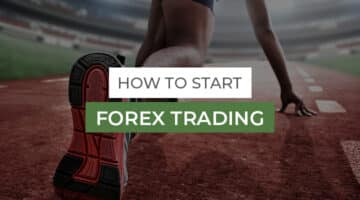
How to Start Forex Trading?
[top_three_brokers] Your quick guide to Forex trading in South Africa, answering the big question on…
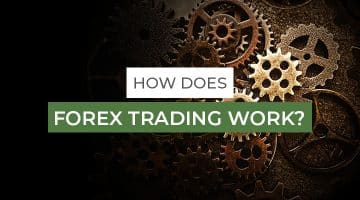
How Does Forex Trading Work?
[top_three_brokers] Forex, or the foreign exchange market, differs significantly from stock trading. Therefore, these differences…
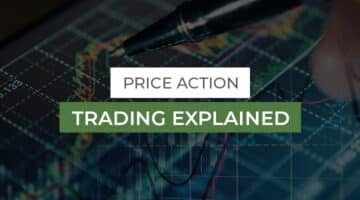
Price Action Trading Explained
[top_three_brokers] In the fast-paced world of forex, price action is the foundation stone for technical analysis. Many…
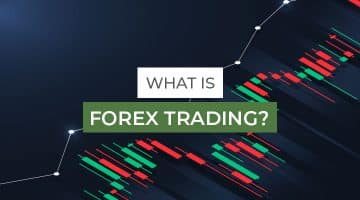
What is Forex Trading all about?
[top_three_brokers] What is Forex trading? How does Forex trading work? Forex trading is the buying and selling…

Basis Points Explained
[top_three_brokers] Basis Points is also known as bips or bps. It functions as a measurement…

What are Fractional Pips in Forex?
[top_three_brokers] One major thing which each trader needs to be conscious about is related to…

What are Index Points?
[top_three_brokers] Do you know what the index point is? A market index point is a…
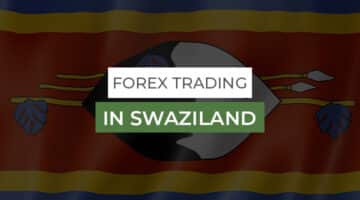
Forex Trading in Swaziland
[top_three_brokers] Did you know over $5 trillion worth of transactions happen in the forex market…
Forex Trading Volumes – What Is It And How To Use Them
[top_three_brokers] The abbreviation VSA stands for Volume Spread Analysis — the analysis of changes in…

Line Graph Explained
[top_three_brokers] In forex trading, there are different types of charts that help you visualise price…


